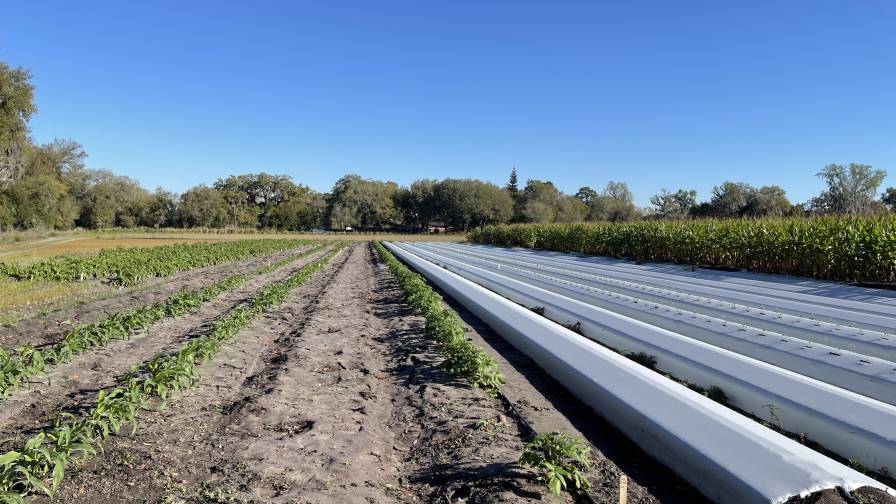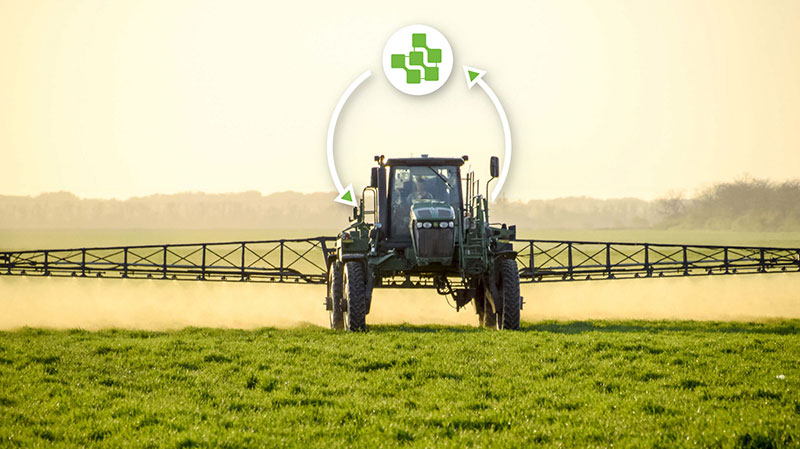The War on Glyphosate Spreads
Although glyphosate has been in use in crop fields since 1974, debate over the safety and continued use of the herbicide has never been more intense than now. And the scope of these attacks is spreading.
In reality, says Bob Reiter, Global Head of Research and Development, Crop Science Division for Bayer, glyphosate never should have been come under such fire from regulators around the world. “Glyphosate is one of the most studied molecules that has ever been introduced into the agricultural marketplace,” Reiter says. “Time and time again it’s been shown to have a tremendous safety record.”
That fact, however, has been disputed in some parts of the world recently. In fact, in 2015 the World Health Organization’s International Agency for Research on Cancer (IARC) published a report concluding that glyphosate was “probably a cause of cancer.” Although this finding has been contradicted by research from other regulatory agencies around the world in the intervening years, many glyphosate opponents have consistently cited the IARC report as “proof” that the herbicide is dangerous to human health and should be banned.
A few years later, in 2017, glyphosate was up for renewal for use in the European Union (EU). Several members cited the IARC report as a reason for the body to not re-approve it. Following months of indecisive votes among the 28 EU member states, an agreement to re-approve glyphosate use in the block for five years was reached in September 2017 as 18 countries voted in favor of it. Despite this, one of the countries that voted against continuing the use of glyphosate, France, vowed to “take all necessary measures to ban the product as soon as an alternative was made available.”
Issues in the Americas
No sooner had the EU situation on glyphosate passed than efforts to ban its use sprung up in Latin America. In Argentina and Brazil, glyphosate opponents began calling for bans on usage throughout 2018. In August a federal judge ordered a suspension of the sale of products containing glyphosate in the country until a “toxicological re-evaluation” of these could be completed by Brazil’s sanitary authority. One month later, in September, an appellate court in the Brazil lifted the ban, saying that “nothing justified” the suspension by the lower court.
At about the same time as the glyphosate debate was raging in South America, events regarding the future of the herbicide took an interesting turn in the U.S. In the summer of 2018 a jury in the state of California reached a verdict against the herbicide and its maker, Monsanto (now owned by Bayer). This lawsuit, brought by a groundskeeper that claimed using glyphosate had given him non-Hodgkin’s lymphoma, was decided in favor of the plaintiff, with the jury awarding him $289 million in damages. This was ultimately reduced to $78 million by the judge in the case on some legal technical grounds but was still allowed to stand. Even with this smaller amount, the award is being appealed by Bayer. Because of it, several thousand more such lawsuits are in the legal pipeline across the U.S., waiting to come to trial, and anti-glyphosate forces are claiming “victory against the interests of Big Agriculture.”
The Industry Responds
Given these events and many more challenges from around the world, says Liam Condon, President of the Crop Science Division for Bayer, it is important for agriculture to come to the defense of glyphosate. “Glyphosate is demonized [in Europe],” Condon says. “Monsanto at some point, more or less, gave up trying to educate the population here on glyphosate’s safety. We have to try to do this going forward.”
Several other market watchers agree with Condon’s point. This was made clear during a special briefing on glyphosate held by Bayer as part of its Future of Farming Dialogue event in Monheim, Germany, in September 2018. As Bill Reeves, Regulatory Policy and Scientific Affairs Manager for Bayer, told attendees, the war on glyphosate goes deeper than just distrust of an herbicide.
“This is a political molecule,” Reeves said. “It’s not only a symbol of Monsanto, it’s a symbol of modern agriculture. It’s become a way to drive concerns among consumers about GMO (genetically modified organism) use. Consumers may not fully understand what GMOs are, but when you bring up the chemicals used to grow them, in this case, glyphosate, that’s an attention-grabbing ploy that has worked.”
Another speaker at the event, Guy Smith, Deputy Director of the National Farmers Union in the United Kingdom and a grower, agreed with this view. “This is all about GMOs,” Smith said, pointing out that more than half of glyphosate use ties in with the planting of GM crops. “Glyphosate is a political molecule, and it’s being attacked to keep GMOs out of Europe. It’s amazing to me that other more dangerous chemicals, which are more harmful in smaller doses, don’t come under the same scrutiny that glyphosate has.”
Across Europe, Smith said he has encouraged all the groups interested in protecting glyphosate — the companies that produce it, scientists who have studied its safety, and the growers themselves — to speak out in its defense. Still, given his position, most of these efforts have focused on the growers. “It’s important that farmers demonstrate that they are using pesticides professionally,” Smith said. “Routine use of glyphosate pre-harvest, just in case, is bad farming. Farmers should always have sound agronomic advice before using any product.”
Smith added that the fight to protect glyphosate use for agriculture must be a priority across the globe. “If we lost glyphosate, we would lose the battle against many, many weeds,” he warned. “We must take the campaign against glyphosate seriously because, if we end up having it banned, anything we use in farming could end up being banned.”






